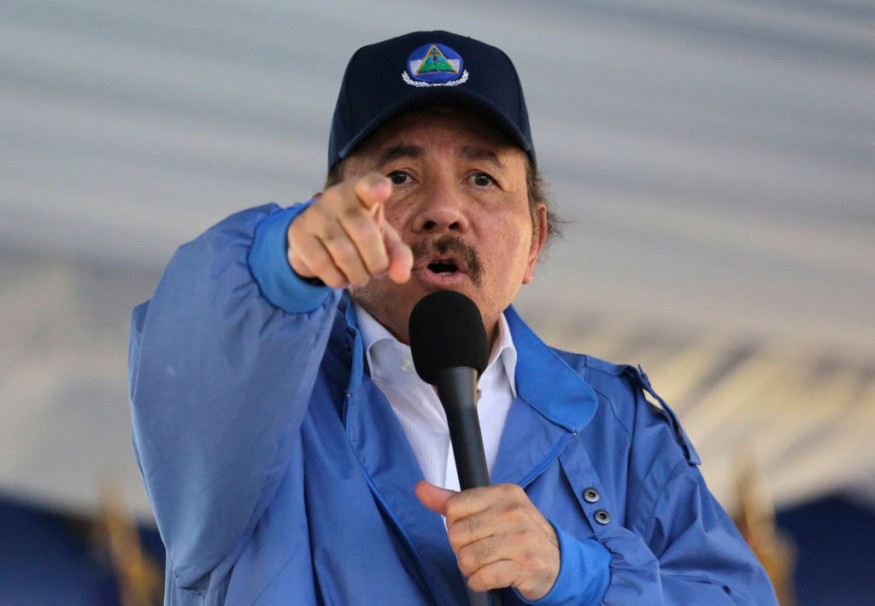Nicaragua Strips 94 Political Opponents' Citizenship

Ninety-four political opponents, including writers Sergio Ramrez and Gioconda Belli, had their citizenship revoked by Nicaragua on Wednesday.
In a statement by Appeals Court Justice Ernesto Rodrguez Mejia, they have deemed "traitors" and stripped of their Nicaraguan citizenship.
Mejia also warned that the government would seize their possessions, AP reports.
Rights activist Vilma Nez, former Sandinista rebel commander Luis Carrión, and writer Carlos Fernando Chamorro were among those accused of "spreading fake news" and "conspiracy to undermine national integrity," he added.
However, the legal basis for the proclamation was unclear.
The Nicaraguan congress has not passed a bill letting the government take away people's citizenship.
Mejia claimed that most of the individuals on the list were now considered "fugitives" since they had left Nicaragua after President Daniel Ortega began rounding up his political opponents two years ago.
Meanwhile, nothing was said about the fate of the people on the list still in Nicaragua.
It comes after Ortega released 222 political prisoners, including leaders, priests, students, activists, and dissidents, just days earlier.
Shortly after, Ortega's administration decided to deny the expelled former prisoners their Nicaraguan citizenship.
READ NEXT: Nicaragua Frees 222 Political Prisoners
Nicaragua's Decision to Strip Citizenship Violates International Law According to Experts
Temple University international law professor Peter J. Spiro and others have argued that the practice of revoking citizenship in this situation is illegal because it goes against the terms of a treaty approved in 1961 by the UN that all member states, including Nicaragua, signed to prevent statelessness.
According to the treaty's terms, states are forbidden to "deprive any person or group of persons of their nationality on racial, ethnic, religious or political grounds."
Spiro said governments could revoke citizenship in certain situations, such as when an individual obtains citizenship from a country forbidding dual citizenship. However, he argued that citizenship might not be revoked as a political tool.
"This is banishment, and banishment is antithetical to modern conceptions of human rights," he said.
The United States has extended temporary protection to the Nicaraguans for two years, and Spain has offered citizenship to the 222 exiles, according to NBC News.
However, according to Jennie Lincoln, an academic who has communicated with several exiles, many former inmates in the U.S. are left in a condition of legal and mental flux.
"Psychologically, they are stateless," Lincoln said. "They're in shock, going from one day being in prison, then hours later on a plane to the United States. Imagine the psychological impact of that, and then being stripped of your citizenship."
Nicaragua Bishop Faces 26 Years in Prison After Refusing Exile
After the government of Nicaragua deported 222 political prisoners to the United States, Matagalpa diocesan head Bishop Rolando Alvarez made a courageous decision to remain in Nicaragua.
"Let them be free; I will pay their sentence," the Roman Catholic bishop said as he turned down the offer of exile and did not get on the plane with the people who were being sent away on Thursday.
Reports said that on Friday, Alvarez was sentenced to 26 years and four months in jail for being a "traitor to the motherland" by Judge Hector Ernesto Ochoa Andino, Criminal Chamber 1 of the Managua Court of Appeals president.
It comes after ten-year prison terms were given to five priests. They used to work with Alvarez, who has strongly criticized President Daniel Ortega's government. Last August, Alvarez and a few other priests were arrested.
The sentence said that the bishop was accused of hurting national security and sovereignty, circulating false information through technology, getting in the way of an official doing his job, and showing extreme disrespect for authority.
According to the judge, all these crimes were "committed concurrently and to the detriment of society and the State of the Republic of Nicaragua."
The judge also revoked the bishop's Nicaraguan citizenship and ordered him to pay a fine of about $1,550.
READ MORE: Pablo Neruda's Cause of Death
This article is owned by Latin Post.
Written by: Bert Hoover
WATCH: Nicaragua sends 222 political prisoners to the U.S. - From NBC News
Subscribe to Latin Post!
Sign up for our free newsletter for the Latest coverage!

















